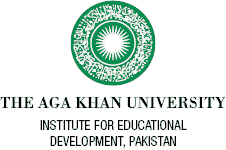The contribution of parents' involvement in augmenting their children's education cannot be denied, along with many other systems of influence which enhance or hinder their learning outcomes. Parents' educational level has been considered as one of the significant contributors. However, evidence related to incremental gains in children's performance along with increase in educational level is yet to be discovered in the context of Pakistan.
This article brings forth such evidence drawn from a large scale study undertaken by faculty members of the Aga Khan University Institute for Educational Development, Karachi. This nation-wide study (2018-2021) was funded by the Higher Education Commission as part of its National Research Programme for Universities (HEC-NRPU). The study aimed to examine the relationship of science and mathematics teachers' pedagogical quality with learning outcome of their students, controlling for other related factors including family (e.g. parents' qualification); school (e.g. system); classroom (e.g. class size); teachers (e.g. qualification) and students (e.g. gender).
This study recruited more than 15,000 students and 600 teachers of three target grades (i.e. 5, 6 and 8) from public and private schools of the six regions in Pakistan: Punjab, Sindh, Khyber Pakhtunkhwa, Balochistan, Gilgit Baltistan and Azad Jammu & Kashmir.
As part of the study, data related to parents' qualification were collected through a questionnaire administered to students. This article focuses, specifically, on results generated through preliminary analysis to explore the relationship between parents' qualification and their children's learning outcomes. The study found that parents' education has contributed positively to their children's performance in two core school subjects: mathematics and science, as illustrated in figure 1.
The results clearly demonstrated an upward trend which becomes more visible as parents' educational qualifications extend beyond secondary school. There are considerably higher gains in scores of children whose parents have attained university level qualifications (i.e. Bachelors, Masters and above). Mothers' education at various levels of qualification, interestingly, seems to have made more of a contribution as compared to fathers. In addition, results revealed that basic schooling (i.e. below secondary school) of both the parents makes no difference in terms of visible gains in their children's performance. Similar trends were observed for both science and mathematics.
These findings are consistent with other studies carried out in different contexts to explore the relationship between parents' education and their children's achievement (e.g. Abuya, Mutisya & Ngware, 2015; Ismail & Awang, 2008; O'Connell, 2019; Wiberg & Rolfsman 2019). This positive association could be explained using the lens of parental involvement in children's education (Jeynes, 2015; Xiang & Chiu, 2021). Arguably, more educated parents may have more 'informed involvement' in their children's education leading to better achievement. For instance, educated parents may have a more positive attitude towards their children's education, teachers and school (Wilder, 2014). Furthermore, they may demonstrate more 'alert' behaviour with respect to school dynamics and targeted learning outcomes and consequently, support their children accordingly (Symeou, 2007). Also, such parents may have a better understanding of the content and help their children in their studies (Patall, Cooper, & Robinson, 2008). Altogether, the nature and pattern of educated parents' involvement in their children's education may give them an edge in providing a conducive learning environment at home and supporting their children's participation in school activities.
While there was a gradual incline in children's learning outcome, basic schooling (e.g. primary or lower secondary) did not make any explicit contribution. These trends can be interpreted by placing the findings in the framework of 'parental involvement in their children's education'. Arguably, parents with basic education may have a 'positive attitude' for their children to attain higher education but 'informed involvement' and 'understanding of content' would be limited. Similarly, parents with no schooling might display a positive attitude by sending their children to school but would not be able to support their academic undertakings. Consequently, parents who have only attained basic schooling were not able to significantly augment their children's conceptual understanding in science and mathematics as compared to those who have no schooling.
In conclusion, parents' education may not directly affect their children's performance but educated parents may be able to mediate through being informed of, involved in, and supportive of their children's learning. Results have implications for educational practices in the country. It calls for improving access and quality of higher education along with strengthening the provision of the lower levels of education so that future generations reap the benefits of informed involvement of highly educated parents in their academic endeavours.
References
1) Abuya, B. A., Mutisya, M., & Ngware, M. (2015). Association between mothers' education and grade six children numeracy and literacy in Kenya. Education 3-13, 43(6), 653-665.
2) Ismail, N. A., & Awang, H. (2008). Differentials in mathematics achievement among eighth-grade students in Malaysia. International Journal of Science and Mathematics Education, 6(3), 559-571.
3) Jeynes, W. H. (2015). A meta-analysis: The relationship between father involvement and student academic achievement. Urban Education, 50(4), 387-423.
4) O'Connell, M. (2019). Is the impact of SES on educational performance overestimated? Evidence from the PISA survey. Intelligence, 75, 41-47.
5) Patall, E. A., Cooper, H., & Robinson, J. C. (2008). Parent involvement in homework: A research synthesis. Review of educational research, 78(4), 1039-1101.
6) Symeou, L. (2007). Cultural capital and family involvement in children's education: tales from two primary schools in Cyprus. British Journal of Sociology of Education, 28(4), 473-487.
7) Wiberg, M., & Rolfsman, E. (2019). The association between science achievement measures in schools and TIMSS science achievements in Sweden. International Journal of Science Education, 41(16), 2218-2232. DOI: 10.1080/09500693.2019.1666217
8) Wilder, S. (2014). Effects of parental involvement on academic achievement: A meta-synthesis. Educational Review, 66(3), 377-397.
9) Xiang, N. & Chiu, S. W. (2021) Parents or teachers: whose guidance matters more in students' alignment of educational plan and achievement? A comparative study of Taiwan and Hong Kong, Asia Pacific Journal of Education, DOI: 10.1080/02188791.2021.1873103
Dr. Sadia Muzaffar Bhutta (PI), Dr. Nusrat Fatima Rizvi (Co-PI); Mr. Sohail Ahmad (Research Associate)


